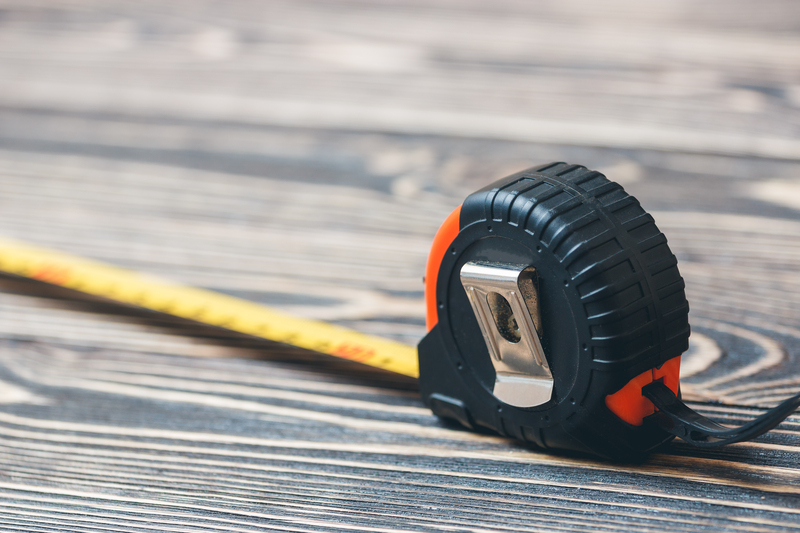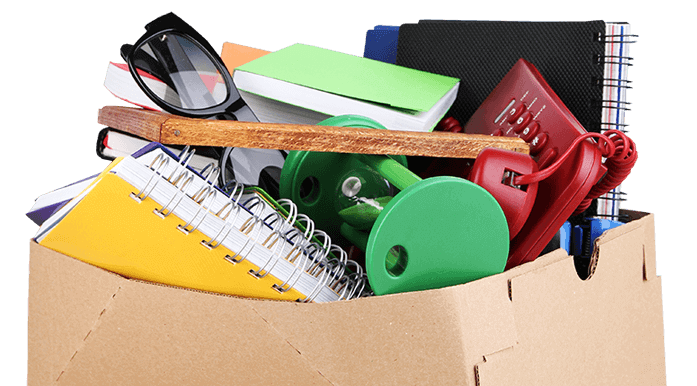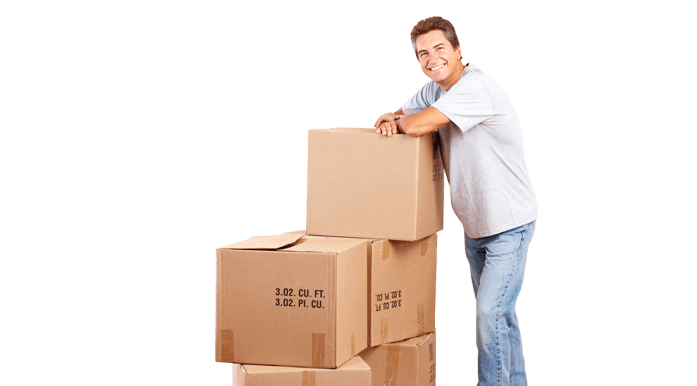Strategies for Storing Your Freezer Safely While Unoccupied
Posted on 25/06/2025
Strategies for Storing Your Freezer Safely While Unoccupied
Leaving your home or property unoccupied for a significant amount of time can lead to concerns about the safety and maintenance of household appliances, particularly the freezer. If not properly managed, a freezer left unused can become a breeding ground for mold, develop unpleasant odors, or even cause water damage upon your return. This comprehensive guide explores effective strategies for storing your freezer safely while unoccupied, ensuring peace of mind and the lasting longevity of your appliance.
Why Is Proper Freezer Storage Important During Absence?
An unoccupied home means appliances like your freezer are often ignored for extended periods. Neglecting freezer care can result in:
- Malfunctions caused by power outages or surges
- Bacterial or mold growth due to lingering moisture
- Unpleasant odors from spoiled food
- Water leaks damaging floors and furniture
- Energy wastage leading to increased utility bills
Therefore, following the best practices for storing a freezer while unoccupied is essential.

Steps to Prepare Your Freezer Before Leaving It Unattended
1. Decide: Leave the Freezer On or Off?
Depending on the duration of your absence and the contents of your freezer, you'll need to choose between leaving it running or turning it off. Here's a decision matrix:
- Short-Term Absence (under 1 month): Keep the freezer plugged in and operating, provided you have reliable power supply and your freezer is in good condition.
- Long-Term Absence (over 1 month): It's generally advised to empty and turn off the freezer to avoid risks associated with food spoilage, power loss, and appliance wear-and-tear.
Important: Always consider potential power interruptions in your area, which can render the contents unsafe and cause severe leaks.
2. Empty and Defrost the Freezer
If you decide to switch off the freezer, be sure to:
- Remove All Food Items: Dispose of perishables properly or donate them.
- Defrost Thoroughly: Unplug your freezer and allow all ice to melt. Place towels around the base to absorb water.
- Clean and Dry: Wipe down shelves, walls, and gaskets with a mild cleaning solution (such as baking soda and water). Dry everything completely to prevent mold and mildew buildup.
3. Avoiding Lingering Odors and Pests
Odor control is crucial when preparing to leave a freezer unused for an extended period. Lingering moisture or forgotten food residue creates an environment ripe for bacteria, pests, and foul smells.
- Deep clean all surfaces--Pay special attention to seals, drawers, and corners.
- Leave the door ajar--Prop the freezer door open using a small towel or purpose-built wedge. This allows air circulation, discourages mold growth and unpleasant odors.
- Consider odor absorbers--Place an open box of baking soda, activated charcoal, or a freezer-safe odor absorber inside the appliance before closing it.
4. Power Management Strategy
If you choose to keep your freezer running while you're away, apply the following strategies for energy-efficient freezer storage during absence:
- Set to the Right Temperature: Ensure the thermostat is set to the manufacturer's recommended setting (typically around -18?C/0?F).
- Minimize empty space: A fuller freezer retains cold better. If you have little food left, add bottles of water to occupy space and maintain freezing efficiency.
- Check door seals: Inspect gaskets for wear to prevent cold air leaks and unnecessary energy consumption.
- Install surge protection: Use a surge protector to shield the appliance from voltage spikes during storms or outages.
- Ask a neighbor or friend to check in: For longer trips, someone local can monitor your freezer, especially if thunderstorm activity or frequent outages occur in your area.
5. Secure Placement and Surroundings
The location of your freezer also plays a role in long-term safety.
- Keep away from direct sunlight or high-heat sources--Excess heat forces the compressor to work harder, wasting energy and potentially overloading the system.
- Ensure proper ventilation--Maintain space around vents and the rear of the unit for air circulation.
- Protect from water and flooding--If your home is prone to leaks or basement damp, elevate the freezer or move it to a dry location.
Advanced Tips for Long-Term Freezer Storage While Unattended
Preventing Mold, Mildew, and Rust:
- Completely dry interior and door seals--Even a little lingering moisture encourages bacterial and fungal growth.
- Use desiccant packs--Placing a few food-safe silica gel packs inside helps absorb excess humidity during longer storage periods.
- Clean external surfaces--Wipe down exterior panels to remove dust, pet hair, or oils that could attract pests.
- Lubricate hinges and metal surfaces--This step keeps your freezer in prime condition while unoccupied.
Freezer Door Management
- Keep the door open for nasal air flow--Use a purpose-built wedge or specialty plastic spacer to prevent accidental closure and maintain interior dryness.
- Secure doors against pets or children--Tape or lock door handles if unsupervised children or animals frequent the area.
Dealing with Freezer in Vacation Homes, Rentals, or Seasonal Properties
Many property owners have freezers in second homes or rentals that are left unoccupied for months. Here are tailored strategies:
- Notify property caretakers--Arrange a regular schedule for someone to check out appliances.
- Leave detailed shutdown instructions--Assist short-term guests or caretakers with easy-to-follow guides on freezer operation and cleaning.
- Label the freezer--Attach an information tag inside and out explaining whether to leave on or keep open, preventing confusion.
What If You Can't Empty the Freezer?
Sometimes it isn't practical to empty your freezer--maybe you have expensive meats, months' worth of meal prep, or are gone for just a couple weeks. In such cases, use these precautionary tips for safe freezer storage while unoccupied:
- Freeze extra bottles of water--A well-packed freezer stays cold longer in a power outage, reducing the risk of food spoilage.
- Leave your contact info with a neighbor--a trusted friend can notify you or take action if there's a mechanical failure.
- Use a freezer thermometer with alarm--Many smart devices now offer remote temperature alerts.
- Clearly mark the circuit breaker so power isn't accidentally turned off during maintenance or property checks.
Checklist: How to Store Your Freezer Safely While Unoccupied
- Decide on ON vs. OFF: Consider length of absence and risk factors.
- Thoroughly clean and dry inside and out.
- Prop the door open if turned off.
- Check seals, vents, and wiring for wear.
- Secure from pests and children.
- Plan for regular check-ins if possible.
- Place desiccant or odor absorber inside.
- Document shutoff and restart instructions.
- Protect from mechanical or water hazards.
Energy Efficiency Hacks for Freezers Left Running
If you must keep your freezer on, make sure you follow these best practices to avoid unnecessary energy waste:
- Fill your freezer without overcrowding--Optimizes thermal efficiency but allows proper airflow.
- Keep coils clean--Check and vacuum dust from condenser coils at the rear or underneath.
- Choose off-peak power settings--Some models allow you to run compressors more at night for lower rates.
- Close curtains or blinds in the freezer's room--Prevents extra heat gain.
Restarting Your Freezer After a Period of Non-use
On your return, take these steps for a smooth restart:
- Inspect interior and seals for signs of mold, pests, or deterioration.
- Wipe down all surfaces again before use.
- Reconnect to power and allow the freezer to reach operating temperature before restocking with food.
- Check for unusual noises or leaks during first run cycle.

Frequently Asked Questions (FAQs)
Should I store my freezer with the door open or closed while unoccupied?
The best practice is to leave the freezer door slightly open if the appliance is unplugged and empty. This allows for air circulation, preventing mold and odors. If the freezer remains in use, keep the door tightly closed to maintain temperature.
Can I leave food in my freezer while unoccupied?
It's safest to remove all food if you won't be present to monitor the freezer, especially in case of power outages. If you must leave food, take precautions such as freezing containers of water, using a thermometer with alarms, and informing someone local to check in.
What is the best way to prevent freezer odors?
*Thorough cleaning, drying, and the use of baking soda or charcoal packs are effective ways to prevent unwanted smells.*
Conclusion: Keeping Your Freezer Safe During Extended Absence
Storing your freezer safely while unoccupied is a matter of careful preparation and a few critical preventative steps. By deciding whether to leave the appliance on or off, emptying and deep-cleaning the interior, managing air circulation, and taking measures against pests and mechanical failure, you can confidently leave your home knowing your freezer and its contents are protected.
For peace of mind, create a checklist based on these strategies, adapt to your property's unique conditions, and involve trusted friends or caretakers as needed. Proper freezer storage during periods of non-use not only preserves your appliance but also prevents messy, costly, or unpleasant surprises upon your return.
Remember: A little planning today can save you from headaches, spoiled food, and expensive repairs in the future. Follow these tips for safe and efficient freezer storage during absence to ensure your appliance is always ready when you need it most.
Latest Posts
Strategies for Storing Your Freezer Safely While Unoccupied
Understanding Why Piano Moving is Not a Solo Task
Navigate Bed and Mattress Moving Like a Pro






